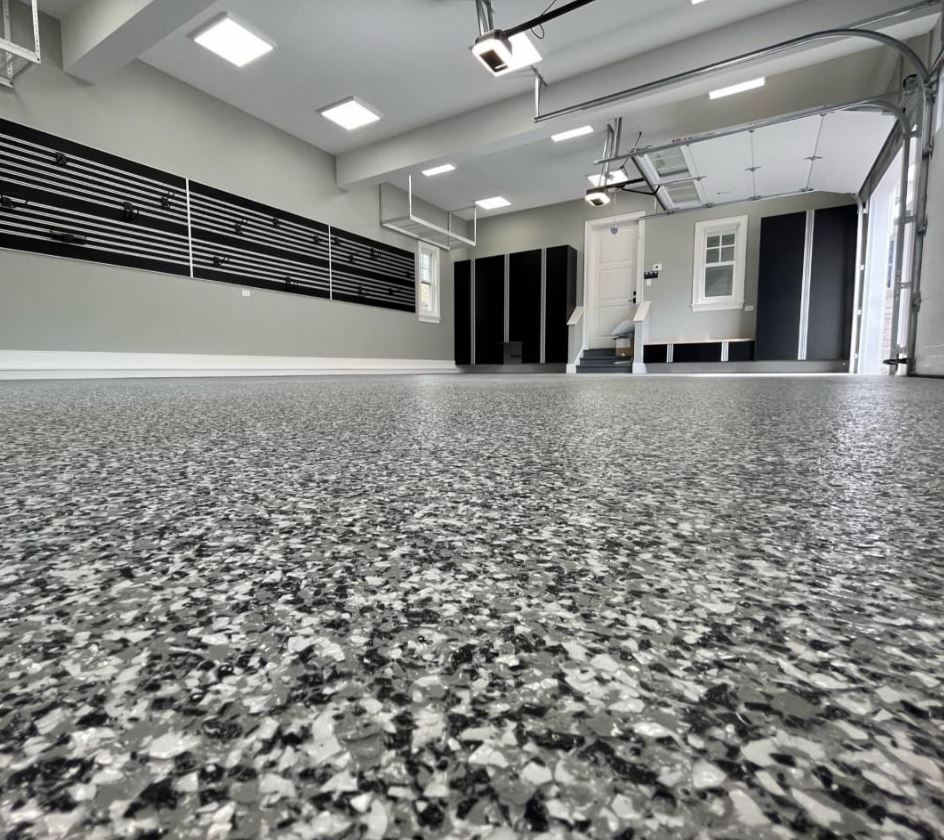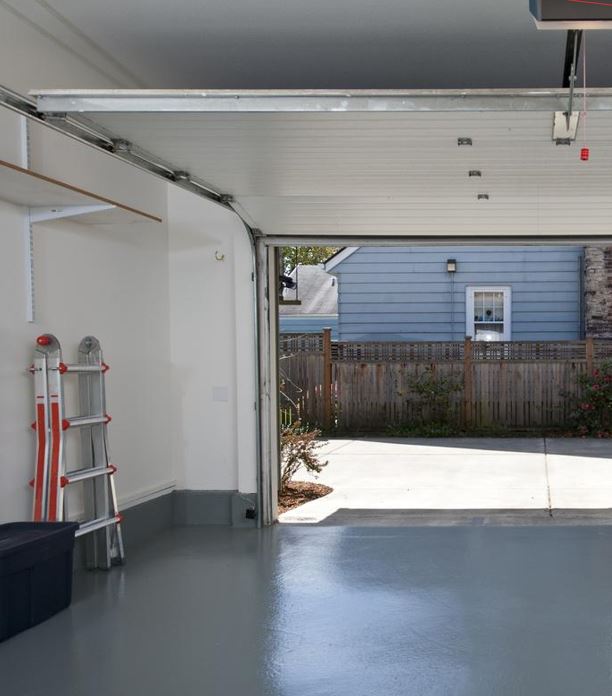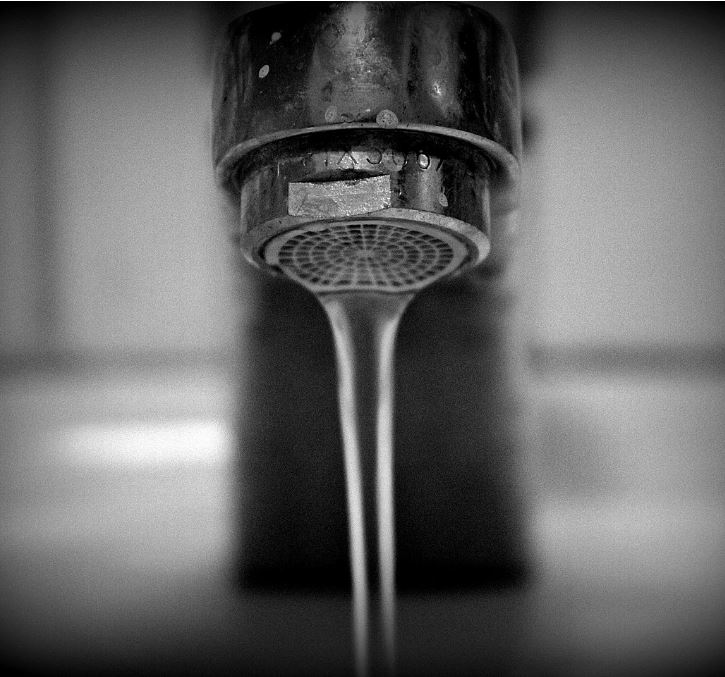How to Protect Your Garage Floor from Road Salt Damage

Road salt can wreak havoc on garage floors, causing cracks, spalling, and unsightly damage. To protect your garage floor, consider durable solutions like garage epoxy flooring in Calgary , which provides a strong, chemical-resistant barrier. Regular cleaning and proper maintenance are also key to extending the lifespan of your concrete surface.
Table of Contents
- Understanding the Impact of Road Salt on Garage Floors
- Key Steps to Shield Your Garage Floor from Salt Damage
- Conclusion: Safeguarding Your Garage Floor Year-Round
Imagine this: winter has finally ended, and as the snow melts away, you step into your garage only to find unsightly stains, flaking concrete, or even cracks marring the surface of your once-pristine floor. What happened? The culprit is often road salt – a common de-icing agent used extensively in Calgary during the colder months. While it keeps roads safe, road salt can wreak havoc on garage floors by clinging to tires and shoes, leaving behind corrosive residue that damages the concrete over time.
Fortunately, there are ways to protect your garage floor from this seasonal threat. From simple cleaning routines to durable solutions like garage epoxy flooring in Calgary, homeowners have options to safeguard their investment. In this guide, we’ll explore practical steps and long-term strategies to keep your garage floor looking great and performing well, no matter how harsh the winter gets.
Understanding the Impact of Road Salt on Garage Floors
Road salt is a double-edged sword—it keeps our roads safe during winter but poses a significant threat to garage floors. Understanding how road salt interacts with concrete is the first step toward protecting your garage floor from long-term damage.
How Road Salt Causes Concrete Deterioration
Road salt, typically composed of sodium chloride or calcium chloride, melts ice by lowering its freezing point. However, when tracked into your garage, it doesn’t just sit harmlessly on the surface. Instead, it seeps into tiny pores and cracks in the concrete. Over time, this moisture can expand and contract due to freeze-thaw cycles, causing the concrete to weaken and flake—a process known as spalling.
Additionally, the chemicals in road salt can react with the minerals in concrete, leading to further degradation. Without proper protection, your garage floor becomes vulnerable to cracks, scaling, and unsightly stains.
Common Signs of Salt Damage on Garage Floors
If you’re unsure whether road salt has already affected your garage floor, there are a few telltale signs to watch for:
- Surface Discoloration: White, chalky residue (efflorescence) caused by salt deposits.
- Flaking or Chipping: Small pieces of concrete breaking away from the surface.
- Cracks: Hairline or larger cracks that develop over time due to moisture infiltration.
These issues not only compromise the aesthetic appeal of your garage but also reduce its structural integrity if left unaddressed. Regular inspections can help catch early signs of damage before they escalate.
Why Prevention Is Better Than Repair
Repairing a damaged garage floor can be costly and time-consuming. Once cracks or spalling occur, fixing them often requires professional intervention, such as resurfacing or patching. In severe cases, complete replacement may even be necessary.
Preventive measures, on the other hand, are far more cost-effective and straightforward. By applying protective coatings, cleaning regularly, and using durable solutions like epoxy flooring, you can shield your garage floor from the corrosive effects of road salt. This proactive approach saves money, preserves your property’s value, and secures your garage remains functional and attractive for years to come.

Key Steps to Shield Your Garage Floor from Salt Damage
Protecting your garage floor from road salt requires a combination of proactive measures and durable solutions. Below are some of the most effective strategies to safeguard your concrete surface and keep it looking great year-round.
Regular Cleaning to Remove Salt Residue
One of the simplest yet most effective ways to protect your garage floor is by cleaning it regularly. After winter months, road salt can accumulate on the surface, seeping into pores and causing damage over time. To prevent this:
- Use a broom or leaf blower to remove loose dirt, debris, and salt particles.
- Mix warm water with a mild detergent and scrub the floor with a stiff-bristle brush to lift stubborn residue.
- Rinse thoroughly with clean water to make sure no salt remains behind.
For best results, clean your garage floor at least once a month during winter and immediately after heavy snowfall or de-icing events.
Applying Sealants for Added Protection
Concrete sealants create a protective barrier that prevents moisture and chemicals like road salt from penetrating the surface. There are two main types of sealants to consider:
- Penetrating Sealers: These soak into the concrete to provide long-lasting protection against water and salt damage while maintaining a natural appearance.
- Film-Forming Sealers: These form a glossy, protective layer on top of the surface, ideal for enhancing durability and aesthetics.
Apply a high-quality sealer every 1-2 years to maintain its effectiveness. For homeowners in Calgary, where freeze-thaw cycles are common, this step is especially crucial to prevent spalling and cracks.
Installing Mats or Rugs at Entry Points
Another simple yet effective way to minimize road salt exposure is by placing mats or rugs at entry points to your garage. These act as a first line of defense, trapping salt, dirt, and moisture before they reach the concrete surface.
Choose mats made from durable, easy-to-clean materials like rubber or polypropylene. During winter, shake out or wash these mats regularly to prevent salt buildup. For added convenience, consider installing scraper mats designed specifically for removing debris from shoes and tires.
Using Protective Coatings for Long-Term Defense
For maximum protection, consider applying a durable coating like epoxy or polyurea. These coatings not only shield your garage floor from road salt but also enhance its appearance and durability. Epoxy flooring, in particular, is highly resistant to chemicals, abrasions, and stains—making it an ideal solution for Calgary homeowners.
Conclusion: Safeguarding Your Garage Floor Year-Round
Your garage floor is more than just a functional surface—it’s an investment that deserves protection. Road salt, while essential for winter safety, can cause significant damage if left unchecked. By taking proactive steps like regular cleaning, applying sealants, and installing durable solutions such as epoxy flooring, you can safeguard your garage floor from the corrosive effects of road salt.
Prevention is always better than repair. Addressing minor issues early and adopting protective measures now will save you time, money, and frustration in the long run. Whether you’re looking to enhance durability, improve aesthetics, or extend the lifespan of your garage floor, professional-grade options like epoxy coatings offer unmatched benefits.







